Bangkok, Thailand is home to an increasing number of urban refugees, currently estimated at +8,000. They come from countries including Pakistan, Palestine, Syria, Sri Lanka, Vietnam, Somalia, and China and are fleeing armed conflict and persecution in their home countries.
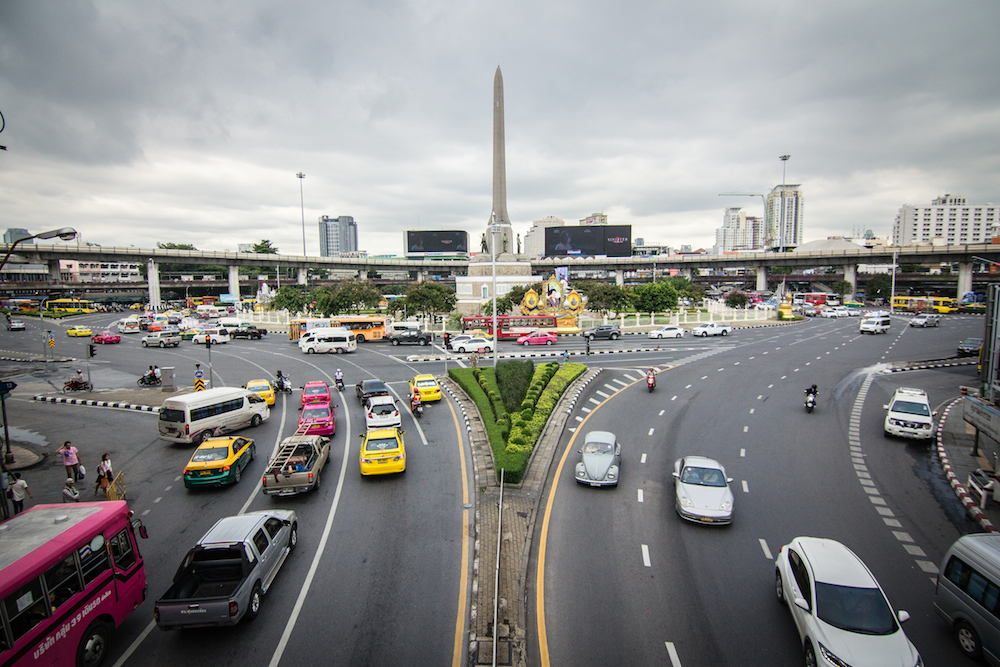
Refugees that overstay their visas or enter Thailand without proper documentation are considered illegal immigrants under Thai law. Thailand is not a signatory of the 1951 Refugee Convention and does not recognize refugees rights.
As a result, urban refugees are forced to live largely invisible lives on the margins of Thai society. They are at constant risk of arrest, detention and deportation, and are unable to work or attend school. Even in the informal market, opportunities are scarce and refugees must rely on charitable organizations as well as other refugees in their community to get by.
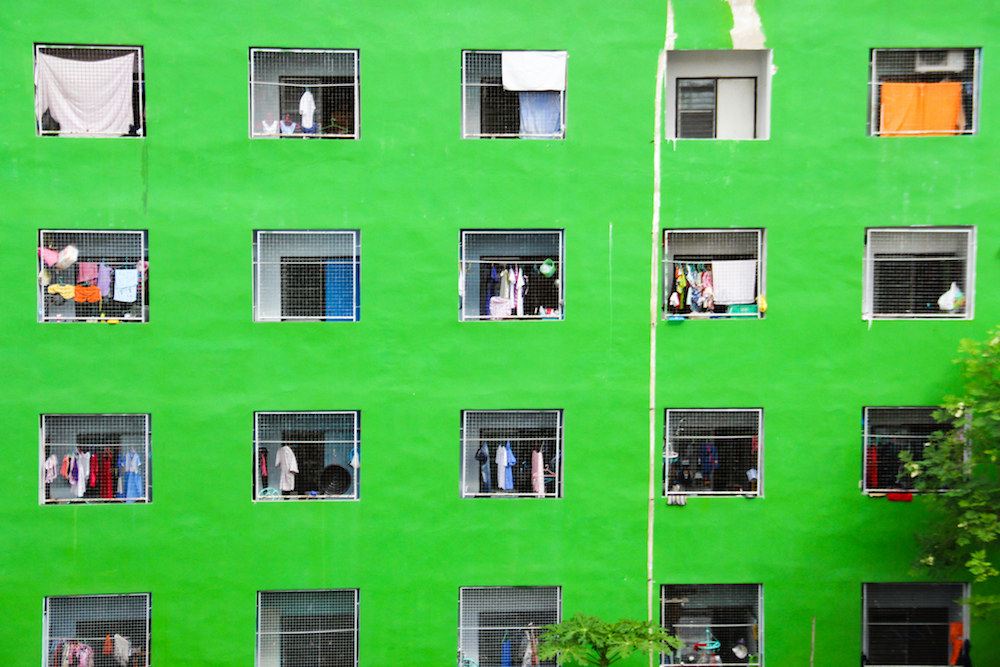
Through their social networks, undocumented refugee families are able to find basic rooms in buildings where other refugees live. A single room often serves as a bedroom for the entire family, a kitchen and a living room, and includes one bathroom. Aviv and his family, pictured below, managed to find a room with a balcony, which they use as a kitchen. Living among other refugees is risky since the Thai immigration police regularly carry out raids in apartment buildings that are known to house refugees and other migrants.
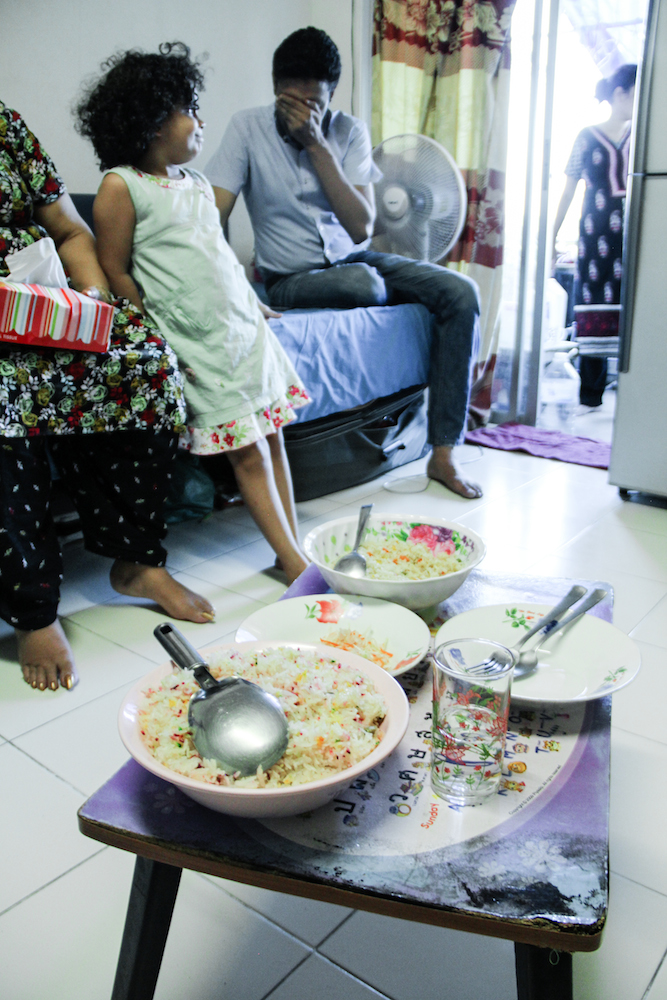
Aviv is a Christian Pakistani that fled his homeland because of religious persecution. He and his family of four rent a room in one of these apartment buildings and have had a difficult time adjusting to life in Bangkok. They have found support in their church and the Pakistani Christian community, and are gradually learning some Thai.
Though limited in their options and unable to access employment, Aviv and his family are resilient, making the most of their arduous situation. Aviv’s mother and wife support other refugees by training them in cosmetics and handicraft work. Aviv is a community legal interpreter with Asylum Access Thailand (AAT) and translates between Urdu and English for other Pakistani refugees.
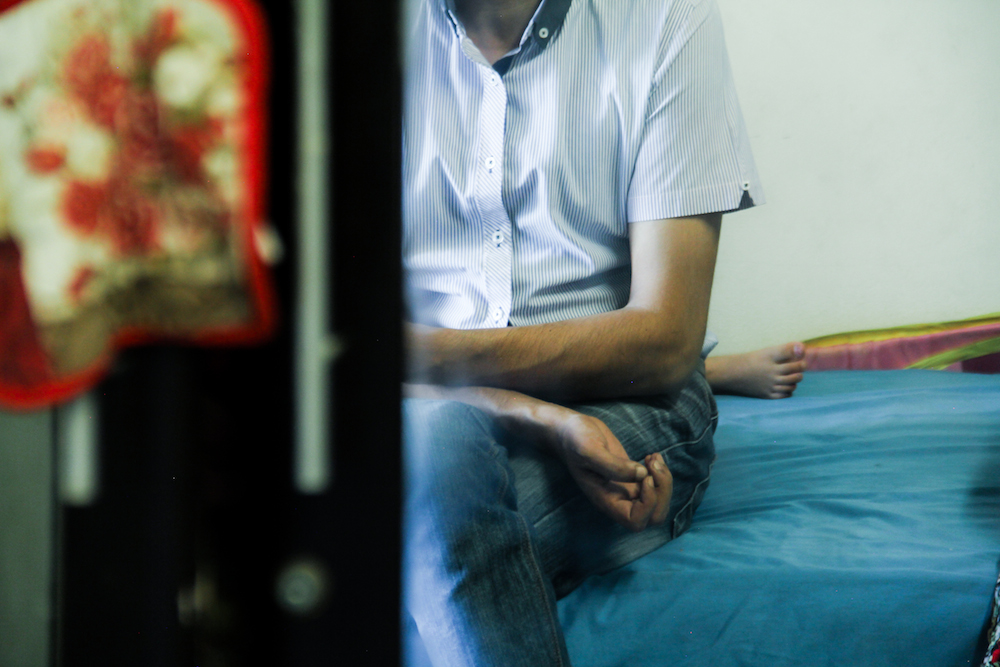
Geni is a Somali refugee that came to Bangkok with her husband. Soon after they arrived, her husband was detained while running an errand. As a henna artist, Geni is able to make a small income, but isn’t able to support herself completely and relies on other Somali women for accommodation and basic necessities.
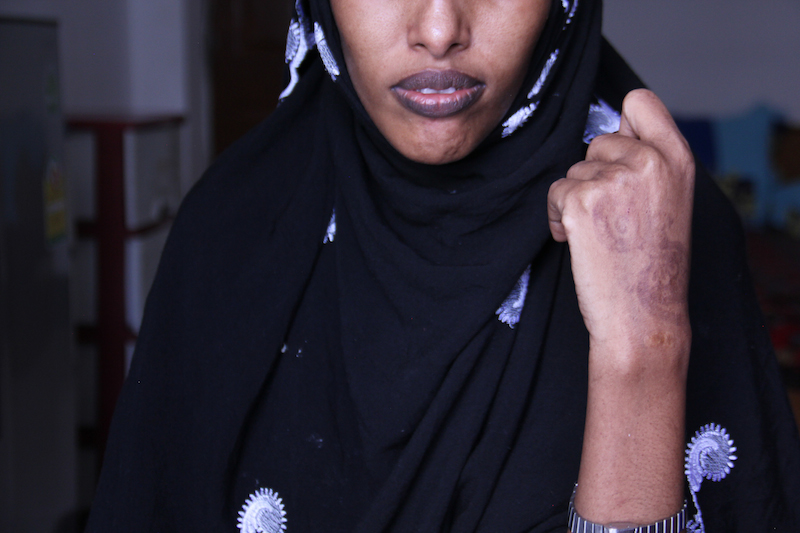
In return, Geni cooks and cleans in their shared living quarters. Since she is also undocumented, visiting her husband at Bangkok’s international detention center is impossible. Detainees may be held for 2-5 years, only released if they can pay bail (+$1400) or if they are resettled to a third country.
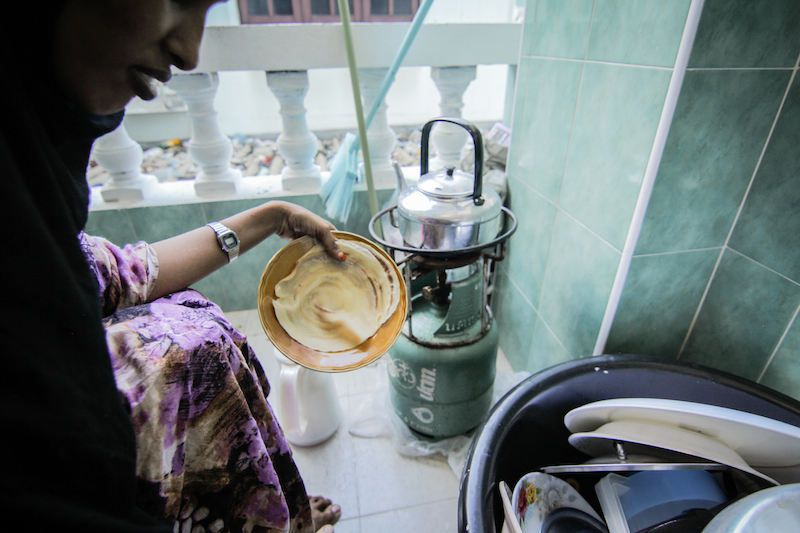
Yousuf and his family were forced to flee their home in Pakistan due to religious persecution. When they arrived in Bangkok, their youngest child began to suffer from a rare autoimmune disorder that made her sensitive to almost everything except her mother’s milk and watermelon. She also suffered from severe eczema, probably related to her condition.
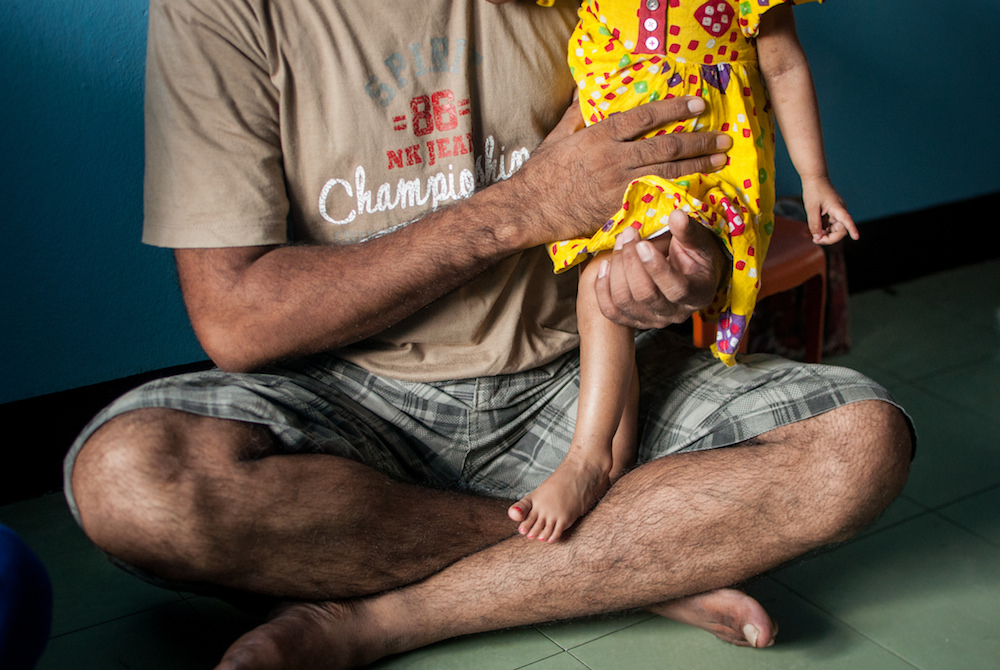
Recognized refugees in Thailand may access basic medical services, but finding a specialist is difficult because of the language barrier, not to mention the discrimination refugees constantly face. Additionally, refugees are often unable to pay the associated costs.
Yousuf sought help at AAT and was put in touch with a doctor willing to treat their daughter. Due to her condition, their case was fast tracked and when this photo was taken, they had been approved for resettlement and were waiting for next steps.
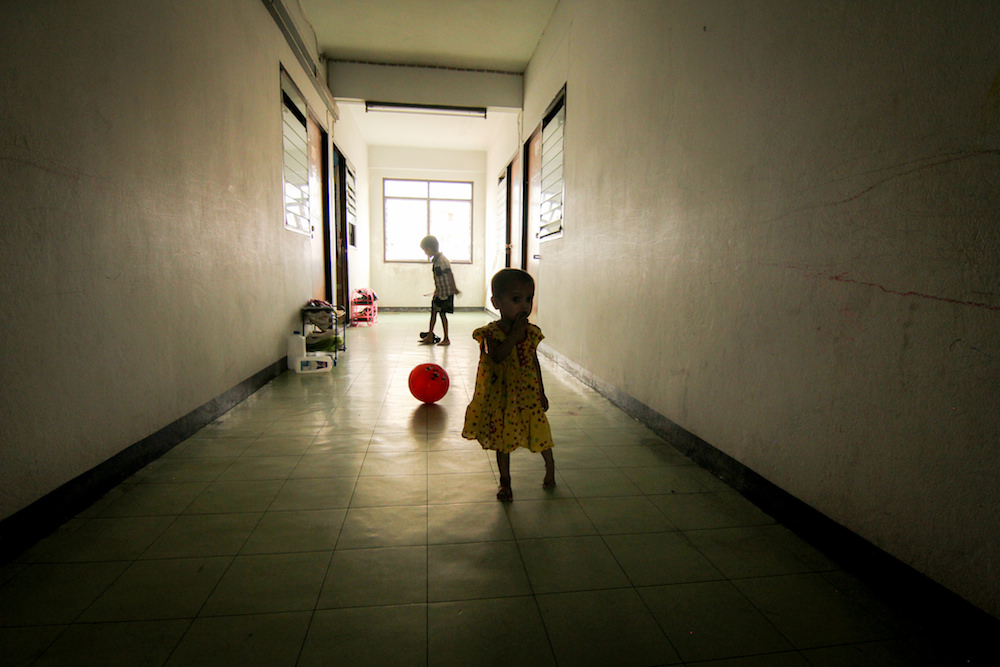
AAT is one of the only organizations in Bangkok that assists refugees, providing guidance on the UNHCR refugee status determination process and the steps involved to apply. As a result, the AAT team has a huge workload and manages many cases on a weekly basis. Pictured below are clients’ shoes left at the entrance of the AAT office.
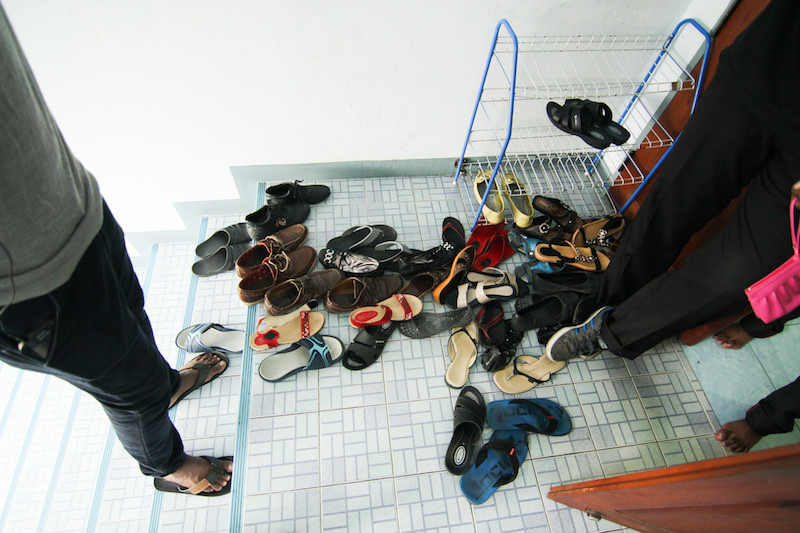
AAT provides a range of different services, including group workshops to asylum seekers waiting for their interviews, advice on how to explain their personal story in an interview, interview techniques, tips on how too write a testimony and advice on resettlement opportunities. All the workshops are organized by language groups, so people from different nationalities come together as a group to receive advice. Volunteers at AAT also provide individual advice and assistance for certain clients. 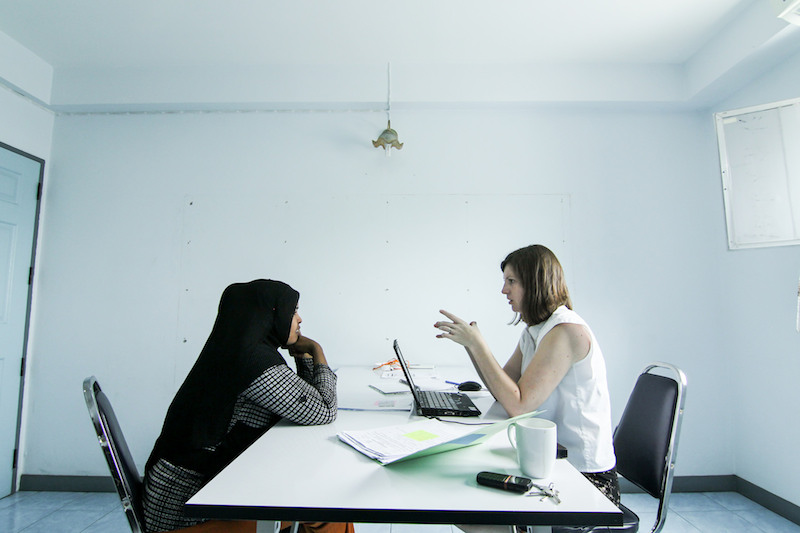
Since refugee clients come from many different countries, AAT started a Community Legal Interpreters program to train volunteer refugees to interpret for other refugees, ensuring that clients can fully express themselves in their own language. The program has been successful in providing refugees with a useful skill as well addressing the need for interpretation during interviews. Interpreters also find great satisfaction in helping their fellow refugees.
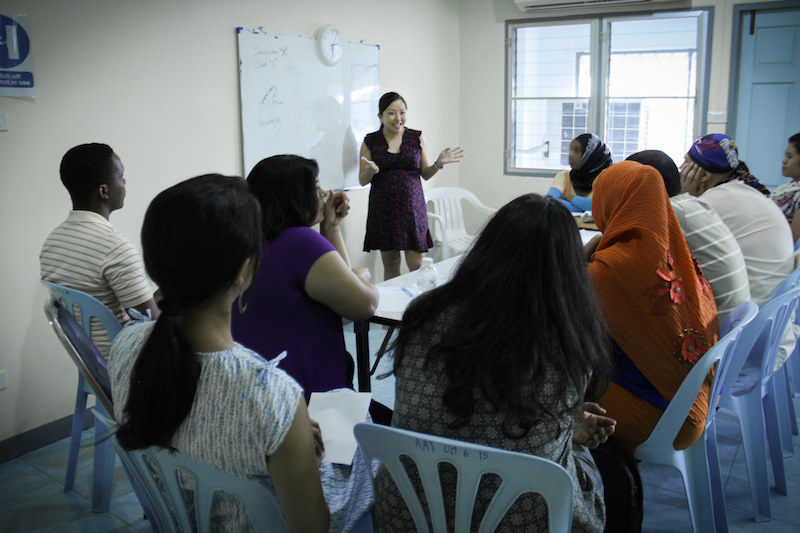
Finally, AAT works with other human rights organizations, decision makers, and the Thai government to advocate for improved conditions for urban refugees in Thailand. In a recent joint UN submission, AAT and six other organizations called on the Thai government to explore alternatives to detention, improve detention conditions, and protect the most vulnerable of groups, including refugee children.
Do you want to join the refugee rights movement? Find out how you can get involved today.
Photo essay by Sandra ten Zijthoff / www.tenweeksoff.com
